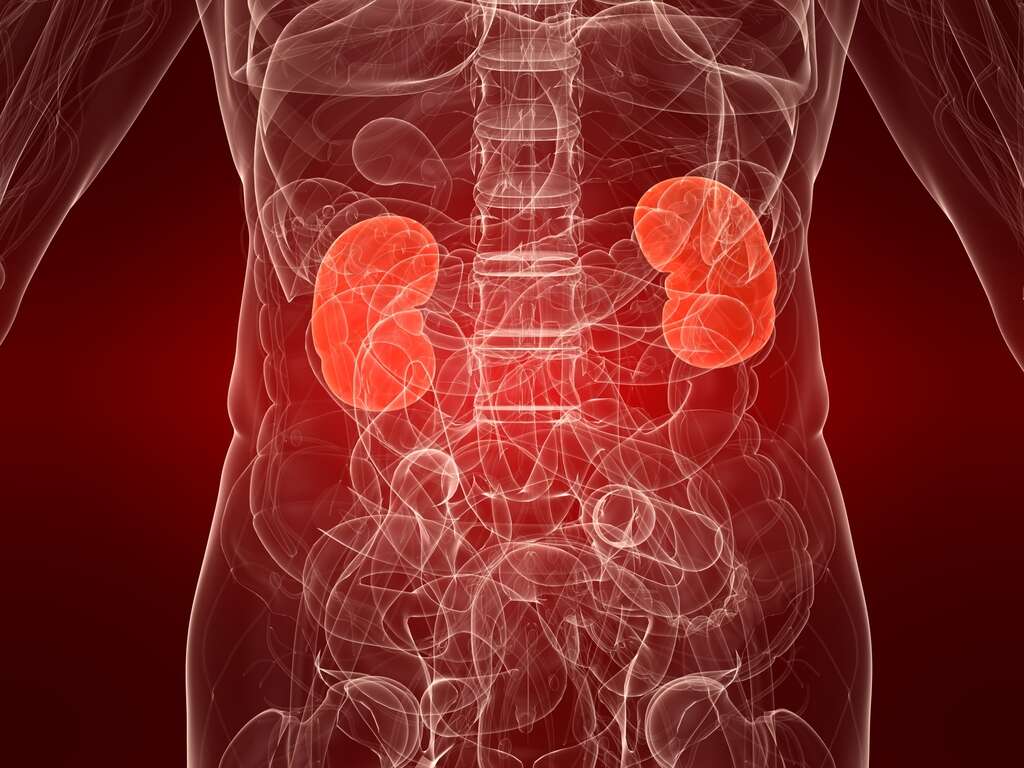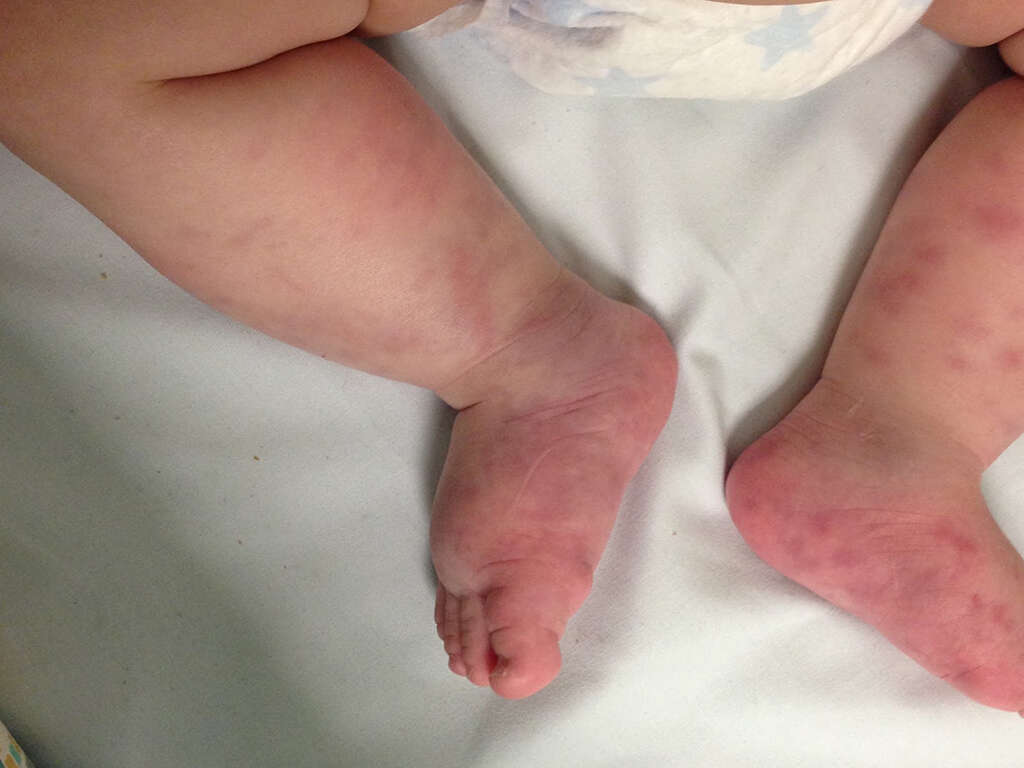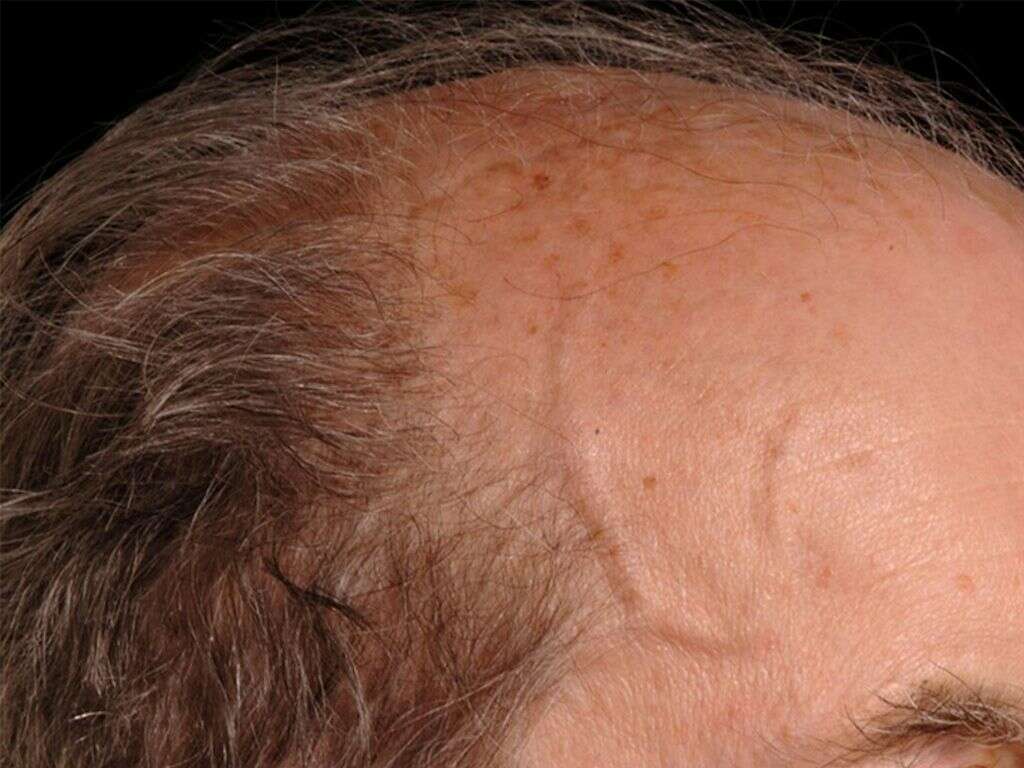What Is Henoch Schonlein Purpura?
 Article Sources
Article Sources
- 1. Mayo Clinic Staff. (2020, November 15). Henoch-Schonlein Purpura. Mayo Clinic. https://www.mayoclinic.org/diseases-conditions/henoch-schonlein-purpura/symptoms-causes/syc-20354040
- 2. Johns Hopkins Vasculitis Center. (2020, November 15). Henoch-Schonlein Purpura. Johns Hopkins. https://www.hopkinsvasculitis.org/types-vasculitis/henochschnlein-purpura/
You noticed a small purplish-red spot on your leg yesterday, and today you have a collection of spots where the one was before. At first, you wondered if they are bug bites, but they don’t itch or hurt at all.
Later, you start feeling unwell with stomach symptoms and you remember that you had a cold the week before. A week later, the spots remain and you are dealing with vague symptoms that you suspect are connected. It may be time to contact your doctor to see if you have Henoch-Schonlein purpura: the name for those pesky spots that won’t go away, as well as their associated stomach and, in some cases, kidney symptoms.

1. Causes
Purpura are small spots that can occur on the skin of patients who have blood disorders, autoimmune conditions, or hemorrhages. They are not bruises, but they may look like them. They are simply places where the blood pools under the skin and creates spots.
They are often not dangerous by themselves, but they can point to another disease or a systemic issue that involves other organs of your body. If you have HSP, you have a specific disease that affects multiple parts of your body, and you will likely require medical treatment.

2. Risk Factors
The most common patient with HSP is a young child who has recently recovered from an upper respiratory infection. An overwhelming 90% of patients with HSP are children.2Johns Hopkins Vasculitis Center. (2020, November 15). Henoch-Schonlein Purpura. Johns Hopkins. https://www.hopkinsvasculitis.org/types-vasculitis/henochschnlein-purpura/
If you are the parent of a child between 2 and 8 years old and you think that he or she shows signs of this condition, do not hesitate in getting an evaluation. Conversely, if you are an adult who shows signs of this condition common to children, go with your gut and ask your doctor about your symptoms.

3. Transmission
HSP is not contagious, but the illnesses that cause it are. The flu, strep, mononucleosis, and other viral and bacterial illnesses can often trigger this condition.
It is unclear what causes some patients to develop HSP and others to remain untouched by the condition, but genetics may be a clue. If you have a family history of autoimmune conditions, you are at higher risk for developing one yourself, which can lead to HSP.

4. Diagnosis
Your doctor will examine your rash and ask you questions about your medical history. He or she may ask you to go to the lab for blood tests or a biopsy. There is no single test that can diagnose this condition, but because the IgA antibody is involved, you may have a large amount of this antibody in the affected organs (like your skin or kidneys).1Mayo Clinic Staff. (2020, November 15). Henoch-Schonlein Purpura. Mayo Clinic. https://www.mayoclinic.org/diseases-conditions/henoch-schonlein-purpura/symptoms-causes/syc-20354040
You can help your doctor make an accurate diagnosis by providing detailed information about your condition. Keep a journal of symptoms, and be sure to include when you first noticed the rash, how it feels, and whether you were sick before you had the rash.
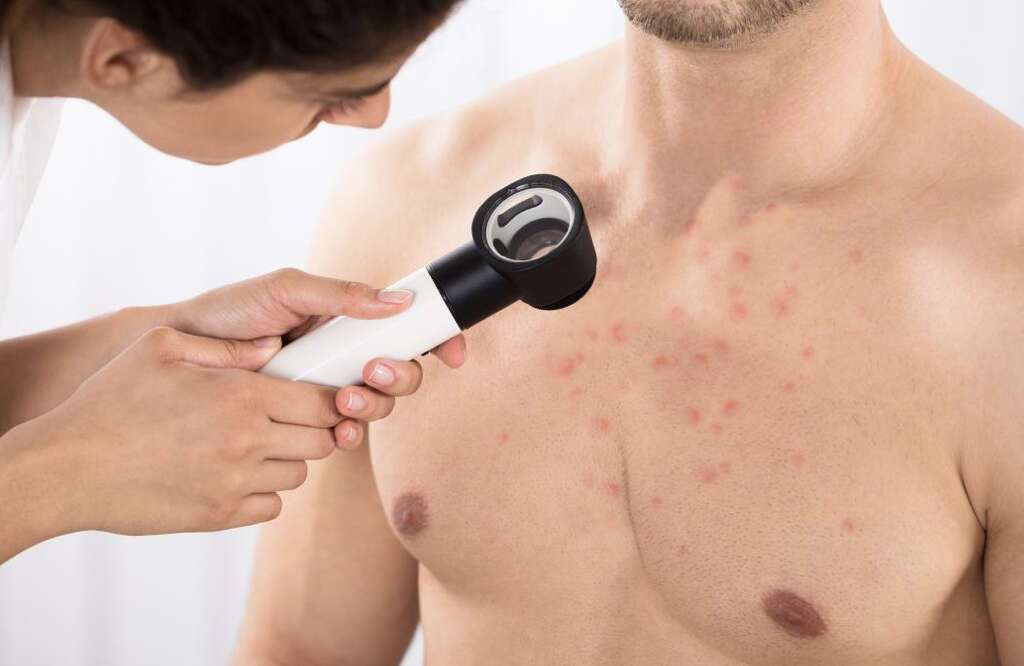
5. Signs and Symptoms
You may have first noticed your spots after dealing with a bout of a viral illness such as strep throat. Autoimmune conditions like HSP often begin after the immune system goes through stress that can be emotional or physical in nature. In this case, a virus can stress the immune system enough to trigger this illness.1Mayo Clinic Staff. (2020, November 15). Henoch-Schonlein Purpura. Mayo Clinic. https://www.mayoclinic.org/diseases-conditions/henoch-schonlein-purpura/symptoms-causes/syc-20354040
You will likely have the rash on your lower legs and buttocks. You also may experience joint pain, stomach symptoms, and in severe cases, kidney pain and trouble when urinating.

6. Complications
HSP patients typically recover within a month if their case is mild. If you don’t show signs of kidney involvement — meaning your urine is clear of protein and bacteria and you are not experiencing kidney pain or trouble urinating — you will likely get over the condition with the use of treatments like NSAIDs and steroids.
If your kidneys are affected, your purpura may clear up while you go onto develop kidney disease. If your bowel is impacted, more serious symptoms can arise and a higher level of treatment is needed. Surgery may be considered if your intestines are severely affected. Fortunately, these complications are rare.

7. Treatment and Management
If your case is mild, your doctor may not prescribe medication for you to take at home. He or she may instead tell you to rest and drink fluids as if you had a more common illness like the flu.
If your doctor thinks you need medication, or if other parts of your body are affected by the condition, you may take a course of steroids to help your joint pain or kidney involvement. If your kidneys are involved, you may have to undergo more testing, such as giving your doctor frequent urine samples, to keep track of your condition.
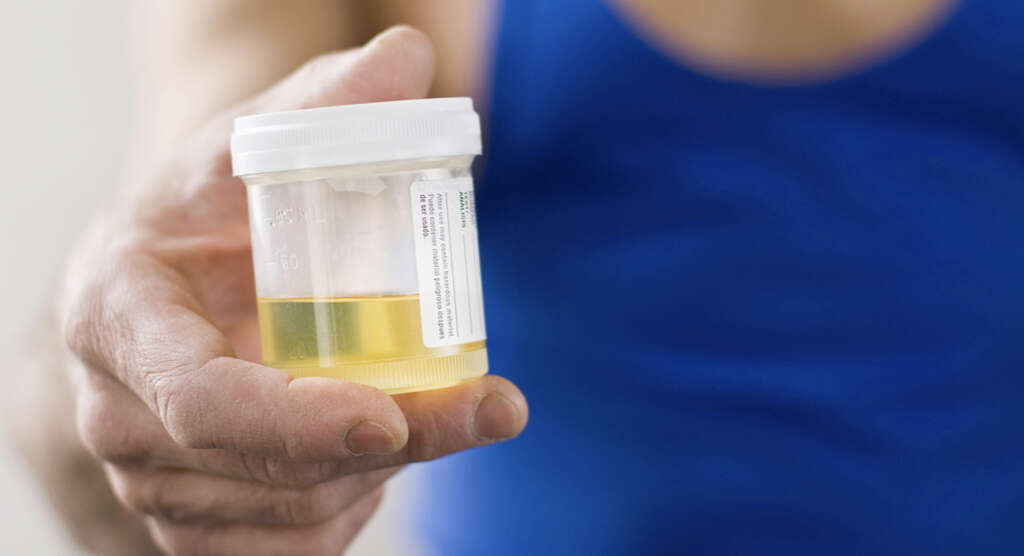
8. Prevention
Because HSP is not a contagious condition and it is difficult to predict which children and adults will be affected by purpura after they have a viral illness, it is nearly impossible to prevent this disease. However, if you know that you or your child gets symptoms of HSP every year after having strep throat, for example, it is recommended to treat the strep as soon as possible.
Making sure to wash hands and avoid crowds during flu season can help you not get sick in the first place if viral illnesses frequently trigger your HSP. Getting proper rest, eating a nutritious ad balanced diet, and taking care of your body can help you to be healthy and less prone to illness in general.

9. Prognosis
Fortunately, if you have a straightforward case of purpura, your condition is likely to last for about a month. There is not much you can do to speed the healing process aside from listening to your doctor’s advice and taking necessary medications.
If you have kidney or stomach involvement, have a conversation with your doctor about whether you need to take stronger medications or if your case is severe enough to warrant considering surgery. Each recurrence of the condition can bring on a different set of symptoms, so it is important that you get a doctor’s advice each time.
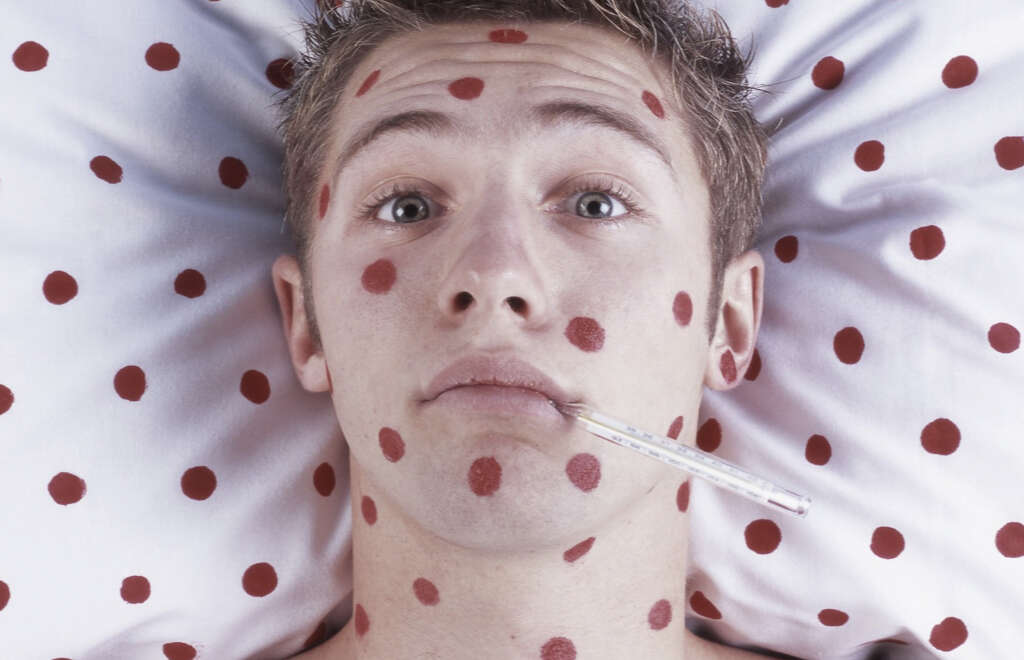
10. When to See a Doctor
Most patients do not have a recurrence of this illness, but some can. If you think your purpura are not disappearing as fast as you think they should, or if you suspect that other organs are affected, be sure to ask your doctor for advice or seek out a second opinion.
You should also ask your doctor if you have questions about your medications. Be careful about taking too many NSAIDS, such as ibuprofen, for your pain. If you have moderate to severe symptoms, your doctor may recommend this class of medication for joint pain; however, if you have additional intestinal symptoms, NSAIDS can worsen them.2Johns Hopkins Vasculitis Center. (2020, November 15). Henoch-Schonlein Purpura. Johns Hopkins. https://www.hopkinsvasculitis.org/types-vasculitis/henochschnlein-purpura/



